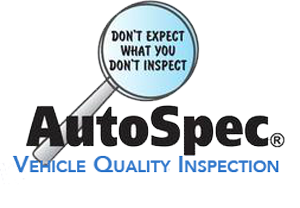Lemon Cars 101
Need a car but are worried about buying a lemon? Whether you’re looking to buy or lease a new car, or purchase a pre-owned vehicle, there is some important information you need to know to ensure you don’t get stuck with a lemon.
What is a Lemon Car?
A lemon is any car or truck that has serious manufacturing defects that may affect the safety, reliability and value of a vehicle. To qualify as a lemon under federal or state laws, a car must meet two criteria. The first is, the vehicle has severe defects that are covered by the warranty and occur within a certain time frame or number of miles after purchase.The second is the car can’t be repaired after a certain number of attempts.
The Federal and State Lemon Laws
Dishonest sellers are everywhere, so don’t rely on what you’re told. Federal and state lemon laws are designed to protect consumers from fraudulent and deceptive practices. The laws also provide legal remedies for buyers of lemons such as a full refund, manufacturer’s buy back, a replacement car or cash settlement. For best results, keep all documentation – warranty, receipts, service contracts, and repair invoices. Hiring an attorney who specializes in lemon law issues is a good idea. In many cases, you can even recoup the cost of your attorney’s fees.
The federal lemon law, officially known as the Magnuson-Moss Warranty Act, regulates warranties on consumer products (including vehicles) that don’t function as expected. The laws require sellers to provide warranties that are easy to understand and enforceable should a product fail to perform properly.
However, federal lemon laws only apply to new vehicle purchases. In situations where a buyer receives a written warranty with a used car purchase, federal laws may apply.
State lemon laws vary considerably. The laws offer different levels of consumer protection. In North Carolina, the state lemon laws do not extend to used car purchases, but federal laws may apply to used cars that are still under the original warranty.
In most cases, if you buy a car “as-is,” the seller doesn’t guarantee the condition of the car. Also, no federal laws exist to protect you when making such a purchase. One good thing to remember is that many state lemon laws don’t allow “as-is” sales above a certain price.
The FTC (Federal Trade Commission) also helps consumers by requiring dealerships to provide a Buyer’s Guide for every used car it sells. The information in the guide supersedes anything you were told about a car. Unfortunately, if you buy a used car from a private seller, you have far fewer options if the car turns out to be a lemon.
How to Avoid Buying a Lemon
If you want to avoid buying a lemon, one of the best things you can do, whether buying from a dealer or a private seller, is to get the car inspected before you buy it or (depending on the dealer) within a certain time period from the day of purchase. By getting an inspection, you will most likely discover any problems the car has and can determine if the vehicle is a worthwhile investment.
For safety, performance, and peace of mind, a car inspection is essential. With an inspection by an ASE-certified technician or inspector, you can usually avoid buying a lemon car. An inspection can also lower repair costs down the line because you can fix minor problems before they become expensive repair jobs.
When buying a new or used car, you need to do your research and learn as much as you can about the vehicle and the lemon laws in your state. An inspection will help you achieve your ultimate goal of driving a safe and reliable car that performs well when on the road.
If you live in North Carolina and want an on-site car inspection, contact Auto Spec for experienced ASE-Certified inspectors.

This site is absolutely fabulous!
Keep up the great work guyz.
This is really helpful, thanks.